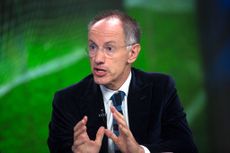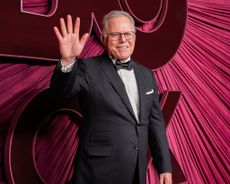People
The latest news, updates and opinions on People from the expert team here at MoneyWeek
Explore People
-

Michael Moritz: The richest Welshman to walk the Earth
Michael Moritz started out as a journalist before catching the eye of a Silicon Valley titan. He finds Donald Trump to be “an absurd buffoon”
By Jane Lewis Published
-

What is David Beckham's net worth?
David Beckham’s net worth comes from his illustrious football career and high-profile endorsement deals, while Victoria has earned millions through fashion
By Oojal Dhanjal Last updated
-

David Zaslav, Hollywood’s anti-hero dealmaker
Warner Bros’ boss David Zaslav is embroiled in a fight over the future of the studio that he took control of in 2022. There are many plot twists yet to come
By Jane Lewis Published
-

The rise and fall of Nicolás Maduro, Venezuela's dictator
Nicolás Maduro is known for getting what he wants out of any situation. That might be a challenge now
By Jane Lewis Published
-

The political economy of Clarkson’s Farm
Opinion Clarkson’s Farm is an amusing TV show that proves to be an insightful portrayal of political and economic life, says Stuart Watkins
By Stuart Watkins Published
Opinion -

The most influential people of 2025
Here are the most influential people of 2025, from New York's mayor-elect Zohran Mamdani to Japan’s Iron Lady Sanae Takaichi
By Jane Lewis Published
-

Luana Lopes Lara: The ballerina who made a billion
Luana Lopes Lara trained at the Bolshoi, but hung up her ballet shoes when she had the idea of setting up a business in the prediction markets. That paid off
By Jane Lewis Published
-

Christopher Harborne: Reform UK donor and crypto billionaire
Christopher Harborne came into the spotlight when it emerged he had given £9 million to Nigel Farage's Reform UK. How did he make his millions?
By Jane Lewis Published
-

The return of Erik Prince, America's notorious mercenary
Erik Prince, founder of the controversial private military group Blackwater, was shunned for pushing the boundaries of legality. He has re-established himself
By Jane Lewis Published
